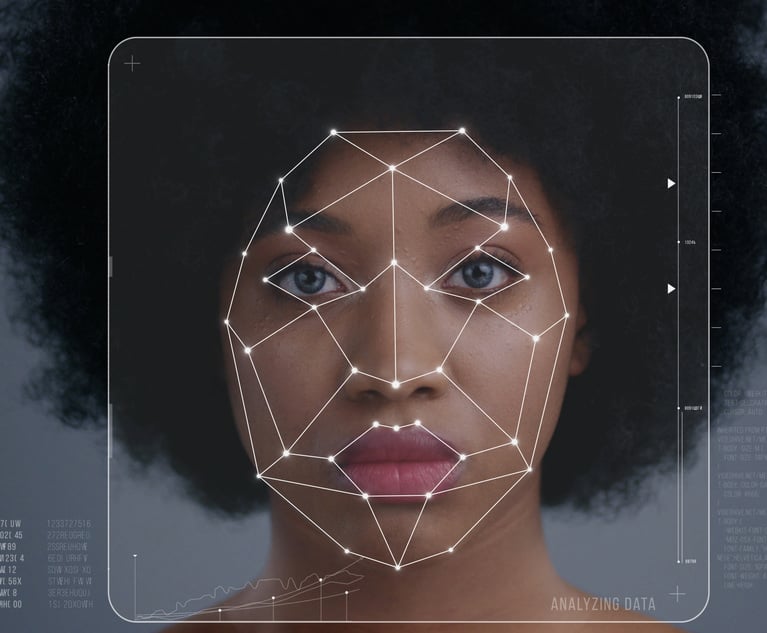BAR REPORT - Juneteenth, a chance to commemorate and educate
NJSBA hosts Juneteenth program
June 21, 2021 at 08:04 AM
4 minute read
Juneteenth, the holiday that commemorates the end of chattel slavery in the United States, was the basis of a program presented by the New Jersey State Bar Association (NJSBA) Minorities in the Profession Section (MIPS) on the significance of the holiday and how the legal profession can help in the continued effort to battle injustice against African Americans.
Panelists for the program, titled "Juneteenth: More Than Just a Holiday, Learning from Our History and Fortifying Our Future," included Raymond M. Brown, partner, Pashman Stein Walder Hayden; Paula Edgar, CEO, PGE Consulting Group; Cliff Dawkins, assistant dean and director of the minority student program, Rutgers University; Cedric Ashley, of Ashley Law Firm; and NaSheena Porter, special deputy attorney general/acting assistant prosecutor, Union County.
Kenya Tyson, assistant provost, academic affairs and university curriculum, The New School, moderated the program, and James A. Lewis, chair of MIPS and executive director, office for diversity and inclusion, New York City Bar Association, introduced the program.
June 19 marks the date in 1865 that Black people who were enslaved in Texas were notified of the Emancipation Proclamation and freed—two-and-a-half years after President Abraham Lincoln signed the measure outlawing slavery in Confederate states.
Long celebrated as a regional holiday, mostly in Texas and other Southern states, Juneteenth was made a federal holiday last week. The holiday has risen in prominence since the country's reckoning over the murder of George Floyd, violence against other African Americans and other social justice issues.
Ashley said it was important to note that Juneteenth symbolizes delayed freedom.
"And we're still facing delay in this country," he said.
Brown said Juneteenth could be viewed as a way of thinking about events in terms of struggle, which continues today with efforts to overturn some states' efforts to restrict voting rights or refusal to teach about racism and slavery.
"There is a battle in America over whether our narrative should be excluded by those who fear us, and those who hate us and those who have disdain for us; over whether our narrative is part of the core," he said.
Porter said Juneteenth is a starting point for the legal profession to address inequities.
"It can't be the one day that you deal with diversity issues. There has to be empathy and inclusiveness throughout the year. If it's not in the heart of your organization, then it's as if you're not doing anything at all," she said.
Edgar said leaders who are willing to show vulnerability and that they are open to learning can have a "trickle-down effect" on an organization.
"A lot of the coaching I do is with white male leaders about how to be in a space of vulnerability without giving up power in the way it's traditionally been seen and still be impactful," she said.
Dawkins said the generation coming up is less tolerant of inequities.
"They are willing to walk away from opportunities that are disaffirming…the talent will go where the talent is comfortable," he said.
Porter said it can be hard to retain people of color in the prosecutor's office.
"They often go to the defense side because they've heard that's where you can make the most change. But a prosecutor has prosecutorial discretion. I always think about, especially for nonviolent crimes, what is justice here? Not just justice for the victim, but what is justice for the defendant? What would be fair for what actually occurred, and always remembering the history … I'm always aware so I would ask other attorneys to become aware as well," she said.
"This is only a starting point, and hopefully lawyers will use their ability to help others in a positive way, no matter what type of law they practice," Porter said.
Black professionals are less than 5% of the legal community, she noted. "We cannot do it alone. That's where allies come in. Because we can't be the only ones facilitating change or it will never happen."
This content has been archived. It is available through our partners, LexisNexis® and Bloomberg Law.
To view this content, please continue to their sites.
Not a Lexis Subscriber?
Subscribe Now
Not a Bloomberg Law Subscriber?
Subscribe Now
NOT FOR REPRINT
© 2025 ALM Global, LLC, All Rights Reserved. Request academic re-use from www.copyright.com. All other uses, submit a request to [email protected]. For more information visit Asset & Logo Licensing.
You Might Like
View All
In 2-1 Ruling, Court Clears Way for Decade-Old Wrongful Imprisonment Suit
5 minute read
Union Leader Awarded $662K Judgment Against Employer in Decade-Old Wiretap Suit
5 minute read
Virtua Drug Tests Pregnancy Patients Without Consent, NJ Attorney General Alleges in New Suit
3 minute read
'Bewitched by the Technology': $300K to Settle Faulty Facial Recognition
4 minute readLaw Firms Mentioned
Trending Stories
Who Got The Work
J. Brugh Lower of Gibbons has entered an appearance for industrial equipment supplier Devco Corporation in a pending trademark infringement lawsuit. The suit, accusing the defendant of selling knock-off Graco products, was filed Dec. 18 in New Jersey District Court by Rivkin Radler on behalf of Graco Inc. and Graco Minnesota. The case, assigned to U.S. District Judge Zahid N. Quraishi, is 3:24-cv-11294, Graco Inc. et al v. Devco Corporation.
Who Got The Work
Rebecca Maller-Stein and Kent A. Yalowitz of Arnold & Porter Kaye Scholer have entered their appearances for Hanaco Venture Capital and its executives, Lior Prosor and David Frankel, in a pending securities lawsuit. The action, filed on Dec. 24 in New York Southern District Court by Zell, Aron & Co. on behalf of Goldeneye Advisors, accuses the defendants of negligently and fraudulently managing the plaintiff's $1 million investment. The case, assigned to U.S. District Judge Vernon S. Broderick, is 1:24-cv-09918, Goldeneye Advisors, LLC v. Hanaco Venture Capital, Ltd. et al.
Who Got The Work
Attorneys from A&O Shearman has stepped in as defense counsel for Toronto-Dominion Bank and other defendants in a pending securities class action. The suit, filed Dec. 11 in New York Southern District Court by Bleichmar Fonti & Auld, accuses the defendants of concealing the bank's 'pervasive' deficiencies in regards to its compliance with the Bank Secrecy Act and the quality of its anti-money laundering controls. The case, assigned to U.S. District Judge Arun Subramanian, is 1:24-cv-09445, Gonzalez v. The Toronto-Dominion Bank et al.
Who Got The Work
Crown Castle International, a Pennsylvania company providing shared communications infrastructure, has turned to Luke D. Wolf of Gordon Rees Scully Mansukhani to fend off a pending breach-of-contract lawsuit. The court action, filed Nov. 25 in Michigan Eastern District Court by Hooper Hathaway PC on behalf of The Town Residences LLC, accuses Crown Castle of failing to transfer approximately $30,000 in utility payments from T-Mobile in breach of a roof-top lease and assignment agreement. The case, assigned to U.S. District Judge Susan K. Declercq, is 2:24-cv-13131, The Town Residences LLC v. T-Mobile US, Inc. et al.
Who Got The Work
Wilfred P. Coronato and Daniel M. Schwartz of McCarter & English have stepped in as defense counsel to Electrolux Home Products Inc. in a pending product liability lawsuit. The court action, filed Nov. 26 in New York Eastern District Court by Poulos Lopiccolo PC and Nagel Rice LLP on behalf of David Stern, alleges that the defendant's refrigerators’ drawers and shelving repeatedly break and fall apart within months after purchase. The case, assigned to U.S. District Judge Joan M. Azrack, is 2:24-cv-08204, Stern v. Electrolux Home Products, Inc.
Featured Firms
Law Offices of Gary Martin Hays & Associates, P.C.
(470) 294-1674
Law Offices of Mark E. Salomone
(857) 444-6468
Smith & Hassler
(713) 739-1250






